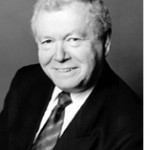By Rabbi Dow Marmur

JERUSALEM–“Hiddush – For Religious Freedom and Equality” is an organization headed by Rabbi Uri Regev, the former president of the World Union for Progressive Judaism and, before that, the head of Reform Judaism’s Israel Religious Action Centre. Hiddush regularly surveys the religious preferences of the country’s Jews.
The latest poll indicates that 9 percent belong to either the Reform (5%) or the Conservative (4%) movements (I’ll call them Progressives in these reflections) – the same number as adherents of ultra-Orthodox (Haredi) Judaism! Half of the more than six million Jews who now live in the Jewish state don’t belong to any religious movement. Some 20 percent describe themselves as religious nationalists, nowadays often identified with the Habayit Hayehudi party and the settler movement (knitted kippot).
Despite the statistics, however, I venture a guess that on any weekday you’ll find more Haredim in their synagogues than Conservative and Reform Jews on Kol Nidre night in theirs.
Before the Israel Movement for Progressive Judaism issues another statement complaining about my views, let me hasten to add that they shouldn’t be blamed for this. Haredim are totalitarians whereas Progressives are, for better or worse, much more laid back about their Judaism. It doesn’t necessarily make the latter less religious, but it does suggest that they don’t have the same fire in their bellies as the Haredim.
With this in mind, many of my Israeli colleagues insist that the future of Progressive Judaism isn’t in Jerusalem, where Haredim are strong, but in ostensibly secular Tel Aviv and its environs. Some may also point out that though half of the Jews in Israel are unaffiliated (see above) they aren’t necessarily devoid of religion. For example, a survey recently conducted by the daily Ha’aretz indicates that 70 percent of all Israeli Jews believe in God.
Observers have also pointed to the many religious manifestations of both popular and “high” culture in Israel. These are reflected, for example, in the fact that virtually all Jews here mark Jewish holy days; that many celebrate Shabbat in some form; that they’re familiar with Jewish sacred texts and Jewish history; that they see themselves as part of the Jewish people. Students of Israeli life may also wish to show that perhaps most unaffiliated seemingly secular Israelis are more committed to Judaism than even some active members of congregations in the Diaspora.
Despite the statistics, Haredi Jews will continue to have infinitely more clout in Israel than Progressive Jews because the former are organized in political parties that sit in governments and wield enormous power. Though some Reform and Conservative leaders have had political ambitions in the past and others may have plans in the future, a religious Progressive political party would go against tenets of Progressive Judaism. But even if such a party existed, few would vote for it. Our form of Judaism and party politics don’t go together: it’s the price we must pay for our religious liberalism.
Though the Hiddush survey is most gratifying it would be unrealistic to expect major progress on issues that concern Conservative and Reform Jews. Our only hope is that the majority – not least the 50 percent unaffiliated – will one day take steps to bring about the separation of religion and state. The future of Judaism in Israel depends on it.
*
Rabbi Marmur is spiritual leader emeritus of Holy Blossom Temple in Toronto. Now residing in Israel, he may be contacted via dow.marmur@sdjewishworld.com